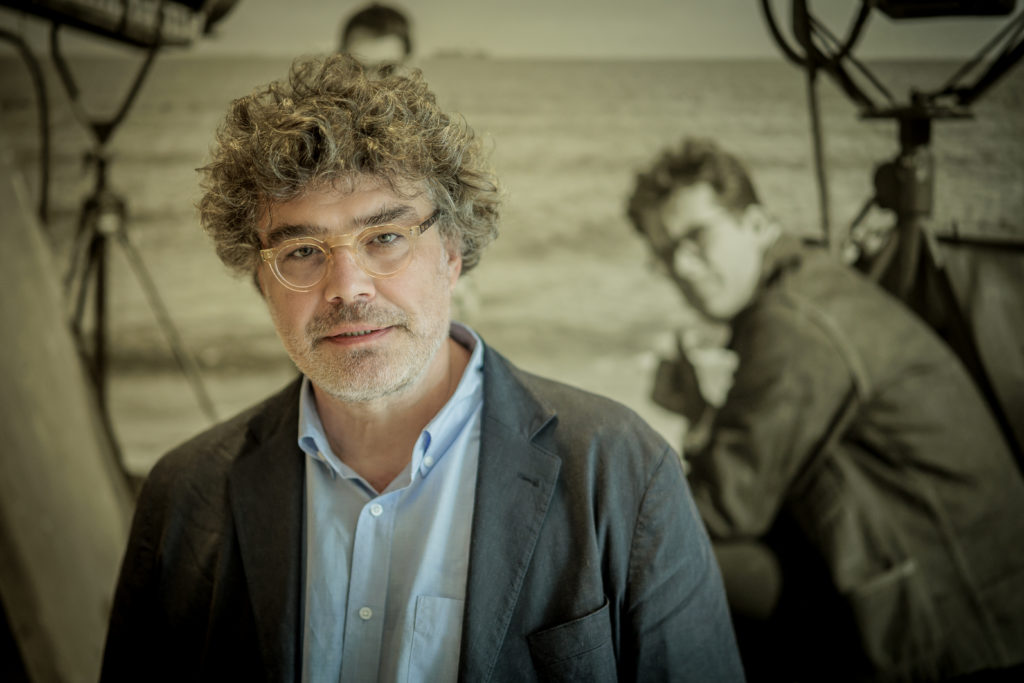THE MOST IMPORTANT THING FOR A FILMMAKER IS TO MAKE FILMS

An Interview with Grzegorz Łoszewski, President of the Polish Film Association
Mateusz Demski: In June, you were elected as the new president of the Polish Film Association. What are your goals for the near future?
Grzegorz Łoszewski: The primary step is to achieve a state that could be termed “normality.” There have been numerous doubts regarding the association’s previous activities—even concerning fundamental issues, such as adhering to the provisions of the law that regulates the operations of collective management organisations, which the Polish Film Association became a few years ago. Currently, audits and reviews are underway, so it will be necessary to normalise the situation in many areas—we have started with the economic sector, specifically expenses.
We also want to steer this organisation towards contemporary standards. We aim to improve internal communication and activate the various circles and sections. This is our collective organisation, so we should be together as often as possible. We need internal synergy and cooperation—every member has the right to know what the management is working on and to express their opinions on various matters.
Let’s explain to those who are unaware: what role does the Polish Film Association play?
In short, it is simply a representation of Polish filmmakers. The organisation articulates the needs of the community and listens to the demands made by various groups. Internally, we are defined by statute, which aligns with the law. There are three main areas of activity: social, educational, and cultural. These are fundamental matters related to integration, training, and social assistance. We also try to support external initiatives that promote Polish cinema.
What are the needs of Polish filmmakers?
The most important thing for a filmmaker is to make films. Therefore, the main topic is the situation of Polish cinema and the ability to finance Polish productions within the system in which we operate. We feel that we are slowly hitting a wall, and the funds available for productions are becoming relatively smaller.
Isn’t the problem that nearly all Polish productions are funded by public money, while there is a lack of funding from the private sector?
Well, the reality isn’t black and white. The Polish Film Institute is funded by law through donors, meaning broadcasters and television stations, whose revenues are decreasing. At the same time, the very idea of the institute was to attract investors to film production. Due to a lack of certain legal solutions and many other reasons, these investors are starting to become scarce, and perhaps they are already gone. We need to think about what can be done to change this. It might involve transforming the model that relies on the public state element and shifting to a more economic, market-oriented formula.
Is the lack of investors a result of poor performance by Polish films at the box office?
The decline occurred during the pandemic. COVID devastated the market. The audience has returned to cinemas, but for some reason, they haven’t come back to watch Polish films. The paradox is that the same productions that perform poorly in cinemas later do very well on streaming platforms. Our viewers’ preferences have changed. The question is what can be done to encourage Polish audiences, especially younger ones, to return to cinemas for Polish films. Everyone involved—creators, producers, and even cinema owners—should ask themselves this. Perhaps it’s a question of insufficient promotion?
I don’t know if Polish cinema is breaking through in terms of information, if it is sufficiently recognised. Today’s world demands promotion and active support. Possible reasons for this are mentioned in discussions: there’s a lack of funds and opportunities. It’s undeniable that we must fight for young viewers, as they are our future. If they don’t learn to go to the cinema and don’t feel that need, I don’t think anything will change in the next few years—or even decades.
What opportunities do young Polish filmmakers have for debuting?
This period is particularly unique. Compared to the situation after 1989, the path to debut is much easier today. Recently, there have been years when nearly half of the films in the Main Competition at the Gdynia Festival were debuts, and they were also present in other sections. On the other hand, young people complain that the wait for a debut is a long and complicated process, and the conditions for production fall short of professional standards. Unfortunately, we have to produce quickly and on a small budget. This does not help the quality of these productions.
How does the situation look in other areas beyond debut films?
It depends on how you look at it. This year, over fifty films were submitted to the festival, which can be considered quite a lot. Given the capacity of Polish cinemas, only about twenty or thirty of those titles have space for a theatrical premiere. The rest faces a problem. Even if a film manages to get into a cinema, it is quickly overshadowed by a major foreign title. This raises the question: are we as a state capable of financially contributing to this? To what extent can we support the presence of Polish films in Polish cinemas? This question might seem strange in a market economy, but but that is what developed Western societies do. We have examples to draw from.
Returning to debuts: what stories are young filmmakers telling?
Some things do not change: these films are very diverse, sometimes astonishing, but always in some way personal. Importantly, their quality has also risen. Even the first short films sometimes have the flair of a professional production. There is a certain culture and refined aesthetic quality. I have no concerns about originality and development, although—of course—certain trends exist. I remember in my youth when all my friends said they wanted to make films in the style of “AmoresPerros.” It has always been this way, but those young people entering cinema today possess a certain inner maturity. You can see a distinct touch, a unique handwriting, and a desire to follow a given path.
These young filmmakers recently pursued royalties from the internet and won. Aside from that, what next steps do you see for Polish filmmakers?
Aside from the artistic successes of individual films, the issue of royalties was our biggest success this year. There are many challenges ahead, particularly regarding modernising the financing model for Polish cinema—various matters are in process. Financing based purely on economic principles would not only provide comfort but also ensure that productions are much more polished. In the coming months, we will focus particularly on this. We will also support issues related to public media. Without TVP, which is a major donor for film production in Poland, it is difficult to imagine this process. It is a crucial part of the system. In short: many challenges lie ahead of us.
Grzegorz Łoszewski (born 1964) is a screenwriter and a member of the Polish Film Academy. He writes scripts for film, theatre, and television. In 1995, he began collaborating with TVP, Akson Studio, Studio A, and various film studios. He is the creator of the television series “Polish Holidays.” He has authored scripts for films such as „The Night of Saint Nicholas”(directed by Janusz Kondratiuk, awarded for Best Screenplay at the 25th Polish Film Festival in Gdynia), “The Collector” (directed by Feliks Falk, Golden Lions and Best Screenplay award at the 30th PFF in Gdynia, Eagle for Best Screenplay, First Prize in the Polish edition of the Hartley-Merrill competition, screenplay awards at festivals in Moscow and Tehran), and “Shameless” (directed by Filip Marczewski, Berlin 2013 – European Civis Prize for Best Screenplay), as well as the television theatre play “Stygmatyczka” (directed by Wojciech Nowak, Grand Prix and Best Screenplay award at the Two Theaters festival). He is an adaptor of TV formats and a lecturer at the Film School in Łódź and the Gdynia Film School. On June 29, 2024, he was elected President of the Polish Film Association.
Interview by Mateusz Demski
Photo by Wojtek Rojek
This interview appeared in the Festival Newspaper “Klaps”.


